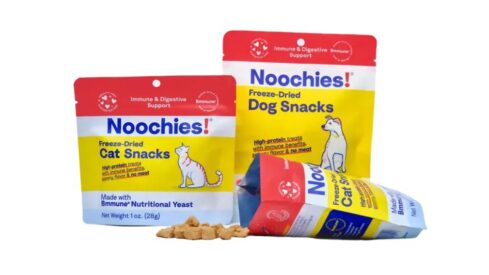CULT Food starts cultivated pet food regulatory race in the US

A subsidiary of the Canadian cell-based firm is to file a feeding trial to seek approval to sell the product in the country.
Further Foods, a subsidiary of Vancouver-headquartered CULT Food Science, announced it is about to finish the design of the feeding trials necessary to gain regulatory approval for dog food products containing cell-cultivated chicken.
The company will submit its application to the US Food and Drug Administration (FDA) later this month. American officials are expected to assess and potentially approve the submission within 45 days.
If it receives a positive response from the FDA, Further Foods expects to begin feeding trials in the last quarter of 2024.
According to CULT Food Science CEO Mitchell Scott, the company seeks to be a “first mover” in changing the status of cultivated meat for pet food applications in North America.
“We believe this FDA feeding trial will position us on the leading edge of cellular agriculture and cultivated meat innovation,” Scott says.
This news comes just a few days after the UK approved the use of cultivated meat in pet food. Meatly became the first company in Europe to be authorized to sell cultivated meat and the first in the world to get the green light to sell this type of pet food.
What is a feeding trial?
Further Foods is designing a target animal safety (TAS) study to include cell-cultivated chicken in products under Noochies!, a cat and dog food brand that the company incorporated into its portfolio after acquiring Because Animals last year.
It will be a 26-week “minimally invasive” feeding study of 30 healthy adult dogs of different breeds and ages. Each dog will receive 1 control dose, 1 test dose and 1 high inclusion dose.
Dr. Sarah Dodd will lead the study and monitor feed intake data, hematology, serum biochemistry, urinalysis, weight analysis and digestibility factors.
“I look forward to navigating the regulatory pathways and feeding trial requirements with the FDA and advancing this first-of-its-kind trial forward,” Dr. Dodd concludes.
